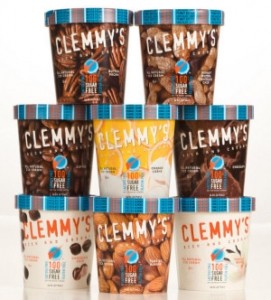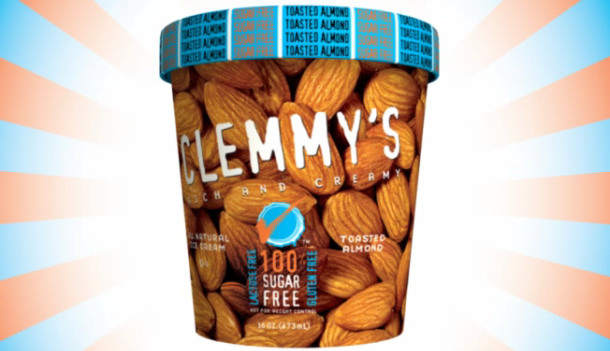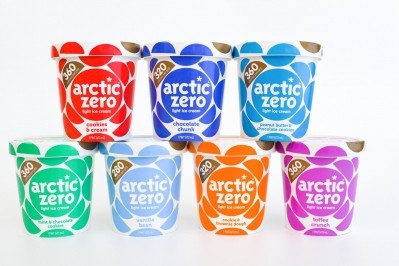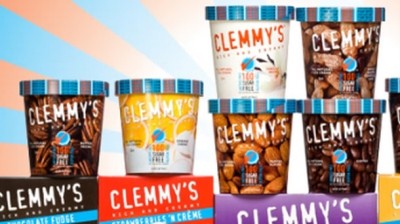Ice cream co engaged in ‘David & Goliath’ lawsuit vs Nestlé alleging unfair competition
Ice cream co in ‘David & Goliath’ lawsuit v Nestlé: Is it time for a rethink about the way shelf-space is allocated in US supermarkets?
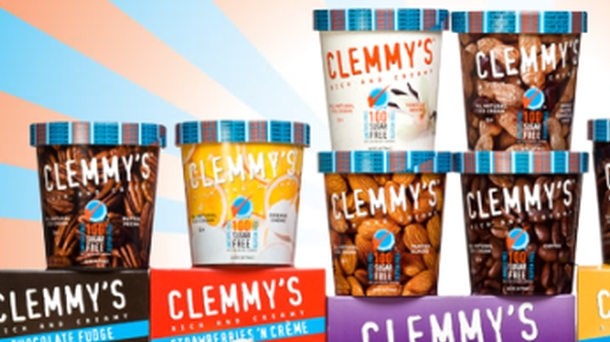
Many of them are, because they can’t ignore the sales data, says Jon Gordon, CEO of California-based sugar-free and lactose-free premium ice cream maker Clemmy’s, which hit the headlines last year after filing a lawsuit accusing Nestlé of unfair competition (more on this below).
Pay to play? Pursuit of slotting fees to achieve profit targets penalizes smaller players
But some retail buyers still rely too heavily on the advice of longstanding CPG category captains when allotting shelf space, he claims. And the pursuit of slotting fees to achieve profit targets has meant some leading brands are given facings their performance no longer warrants, he argues.
As for meaningful access to decision makers at some big retailers, he says, many smaller players can forget it.
“It’s now got to the point where some retailers will only agree to face to face meetings with the top three players [in a given category] and everyone else has to send in presentations by email, and that’s just not the same as talking to someone about your innovations in person.”
Indeed, category captains have so much influence at some retail chains that proprietary information about new products or other strategic plans (promotional schedules and spends for the year, merchandising plans etc) smaller brands such as Clemmy's send to the retailer are then sent on directly to the category captain - with whom they are competing - giving them a clear strategic advantage, he adds.
The odds are stacked against you from the outset
Meanwhile, slotting fees - which are designed to offset the risks for retailers of carrying new products - penalize small firms without deep pockets, he says.
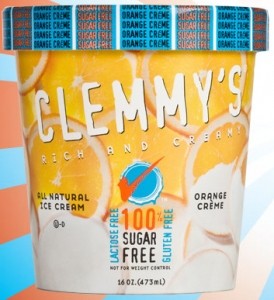
“Some retailers do not charge slotting fees. But many others do and in some cases it’s more than egregious.”
Even if small firms find the cash to get on shelf, they rarely have enough cash to get very much space, so often find that when they first get listed at a large retailer, they sit on shelf with one facing, have no money left to support their brands with other tools, and end up getting kicked out after the trial period because they are not delivering, he says.
“The odds are stacked against you from the outset.”
Large food manufacturers control everything from where products are shelved to whether a competitor’s product should see the light of day at all
But given that the frustrations he outlines above are hardly novel, why is he suing Nestlé?
Because it crossed a line, argues Gordon, who alleges that Nestlé embarked on a coordinated campaign to block a national roll-out of Clemmy’s products at Kroger that had been scheduled for 2012 after the brand performed strongly in California (Ralph’s) and Colorado (King Soopers) in 2010 and 2011.
In his (2nd amended) complaint* filed in Superior Court in Los Angeles on January 6, he adds: “The agreed upon expansion, however, did not occur, due solely to the collusion of Nestlé and Kroger…”
In early 2012, he claims, Nestlé told Kroger’s lead frozen food manager it should drop plans to roll out Clemmy’s, reduce the number of Clemmy’s SKUs it carried in CO and CA, and significantly increase the unit price [thereby pricing his products out of the market] “or Nestlé would not contract with Kroger to distribute Arctic Zero and other Nestlé ice cream products at Kroger stores”.
In return, alleges the lawsuit, Nestlé provided the manager in question with “monetary bonuses, vacations and entertainment events”. The lawsuit goes on to outline a similar scenario relating to Safeway that allegedly took place a year later.
In both cases, Nestlé DSD personnel also placed marketing materials for Nestlé products on freezer doors directly in front of Clemmy’s products, alleges the suit, which quotes from an internal memo sent by Nestlé Dreyer’s general manager in late 2007 about the arrival of Clemmy’s on the market in which he said: “We need to shut this one down.”
As a result of these actions, Clemmy’s suffered from “substantial lost profits”, alleges Gordon.
“Large food manufacturers like Nestlé control everything from where and how products are shelved in supermarkets to how much of a product the supermarket should buy to whether a competitor’s product should see the light of day at all.”
Nestlé: Lawsuit ignores the realities of the marketplace
However, in court papers filed on Feb 5, Nestlé said Clemmy’s problems were caused by Clemmy’s own “misconduct, poor business acumen, noncompetitive practices, disappointing customer service and poor product quality, or by the conduct of third parties.”
It added: “It is not unlawful to enter into agreements or form associations or combinations which are in furtherance of trade or for which the purpose and effect is to promote, encourage or increase competition in any trade or industry.”
A Nestlé spokesperson told FoodNavigator-USA: “We operate fairly and legally, in a highly competitive industry, in full compliance with applicable laws. To allege that any single company controls the decisions of major national retailers or distributors ignores the realities of the marketplace.”
I’m doing this for Clemmy’s but also for all the other SMEs that have faced the same issues
Gordon, however, says he will keep fighting his corner, despite his limited funds.
“It’s a David and Goliath battle and some people think I’m crazy or that it’s just a publicity stunt, but I just felt that enough was enough.”
Meanwhile, there are other less expensive ways to generate PR than taking legal action against the world’s largest food company, he observes.
“I’m doing this for Clemmy’s but also for all the other SMEs that have faced the same issues that we have.”
*The case is Clemmy's LLC v. Nestle USA Inc. and Nestle Dreyer's Ice Cream Co. Inc., case number BC500811, filed in the Superior Court, Los Angeles County, California, on Feb 11, 2013.
Click on the link below to read more about Kraft CEO Tony Vernon’s perspective on promotions and innovation:
